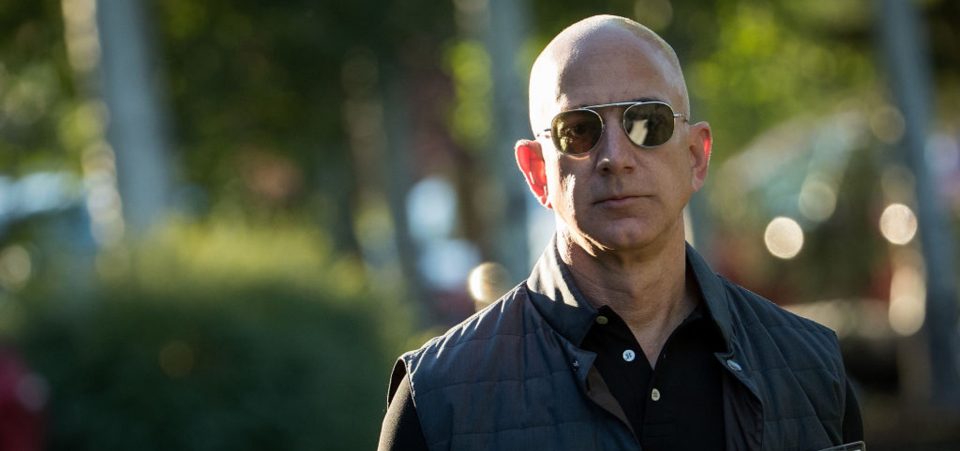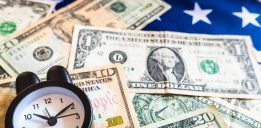Did Jeff Bezos Buy the Washington Post to Spread Fake News?
The year 2017 will be remembered as the year of “fake news.” The term gained traction during the 2016 presidential campaign, but the world will be seeing much more discussion about fake news in 2018.
As far as I’m concerned, the “weapons of mass destruction” accusations that the George W. Bush administration leveled against Iraq constitute the mother of all fake news. It had devastating consequences.
In fact, there is much confusion that revolves around fake news. It should be enough to simply call fake news “lies” or “propaganda.” Perhaps the reason that the term is so popular is that some perfectly respectable names in journalism may have been guilty of fake news themselves. Evidently, individuals can selectively modify and massage information to address a certain need, weaken a competitor, or damage an enemy’s reputation.
Is it possible that some of those reasons persuaded Amazon.com, Inc. (NASDAQ:AMZN) founder Jeff Bezos, the $100-billion man, to buy The Washington Post?
Jeff Bezos bought the 140-year old The Washington Post newspaper in 2013 for some $250.0 million. Bezos explains his reasoning for the acquisition as a business opportunity. In fact, he has transformed the paper into a veritable Internet media powerhouse, capable of competing with any Silicon Valley engineering team. Bezos claims to have stopped short of influencing The Washington Post’s editorial line. (Source: “How Amazon CEO Jeff Bezos reinvented The Washington Post, the 140-year-old newspaper he bought for $250 million,” Business Insider, May 15, 2016.)
Bezos Jumped into The Washington Post with No Hesitation
Had Bezos wanted to turn a business around, there would have been other, perhaps more suitable, opportunities to better fit his digital strategies or the technology needed to revolutionize delivery methods, including drones. In other words, from the Amazon perspective, it would have been better for Bezos to buy a company like GoPro Inc (NASDAQ:GPRO).
But, let us entertain, even if only for argument’s sake, the propaganda angle. In other words, could Jeff Bezos have purchased The Washington Post because it offered, for a mere fraction of his net worth, a powerful tool through which to influence political and economic decisions for the benefit of himself and Amazon?
After all, fake news, understood to be false information, intends to project the political, economic, or financial interests of those who own or control the publications. Once upon a time, fake news took the form of gossip; it peered into the lives of powerful people: Hollywood stars or royals of various degrees. Regardless of the subject, the fake news machine blew up or sometimes literally made up aspects of such people’s private lives for mass consumption. The idea was to sell newspapers.
Today, gossip and news have become indistinguishable. The big news shows often report on the events that happen in popular TV shows such as Survivor or X-Factor. More importantly, the hot piece of gossip or unverified news (often at the very root of fake news) no longer sells newspapers. What it sells is influence. Fake news is the kind of information that truly brings the world back to the world before the collapse of the Berlin Wall. It is a tactic of propaganda or misinformation, including conspiracy theories.
Certainly, whether Jeff Bezos had an actual hand in it, The Washington Post has kept both the Republican Party and, especially, President Donald Trump in its viewfinder. (Source: “Even WaPo acknowledges CNN posted fake news about Trump Jr and Wikileaks,” NOQ Report, December 8, 2017.) I
Trump has not sat still. He has cited The Washington Post and Jeff Bezos specifically, during the electoral campaign and after. The Washington Post took a critical stance on Trump before the 2016 vote. Bezos even joked that he had a spot for Trump reserved in one of the rockets made by his other company, Blue Origin. (Source: “Bezos responds To Trump Tweets by sending him to space,” Forbes, December 7, 2015.)
In turn, Trump casually hinted that Amazon, through its cutthroat pricing practices, has sent thousands of small businesses into bankruptcy.
Trump Has Remained Vigilant about Fake News
Donald Trump has accused CNN of propagating fake news on numerous occasions. But he appears to have reserved a special spot for The Washington Post. Most recently, Trump has called for the paper to fire one of its reporters, Dave Weigel. Trump says Weigel shared a tweet that questioned the number of people who attended a pro-Trump rally in Pensacola. (Source: “Trump Continues ‘Fake News Media’ Attacks After Calling for Washington Post Reporter to be Fired,” The Washington Post, December 11, 2017.)
Weigel and the paper admitted and corrected the mistake, but, the incident is typical of what Trump considers fake news. It’s not unlike the complaints he made about the inauguration rally on January 20, 2017.
Trump and The Washington Post have had more incidents over the past year. Bezos did not join Trumps’s Economic Advisory Council, and the two men appear to dislike each other. Perhaps, had they lived in 17th century Europe, they might have challenged each other to a duel.
In the modern age, they can duke it out to the tune of fake news accusations. Nevertheless, the idea that Bezos bought The Washington Post because it offered a quick and inexpensive tool through which to spread fake news about Trump seems far-fetched.
The purchase occurred before anyone knew Trump would run for the Republican nomination, let alone win the presidency. Moreover, The paper, however hostile to Trump, has shown that it’s capable of retracting or correcting articles that Trump has accused of being fake news.
There’s no doubt that Bezos bought The Washington Post to gain something from it. He’s not known for his tendency to act like a Franciscan monk. But his gains seem to be financial mostly, having turned the famous newspaper around, targeting the online audience.
Perhaps there are ways to manage some of The Washington Post‘s traffic, generate revenue and profits while using some of the tactics of fake news. Still, going from there to suggesting that Bezos is using fake news against Trump directly seems more than unlikely.






